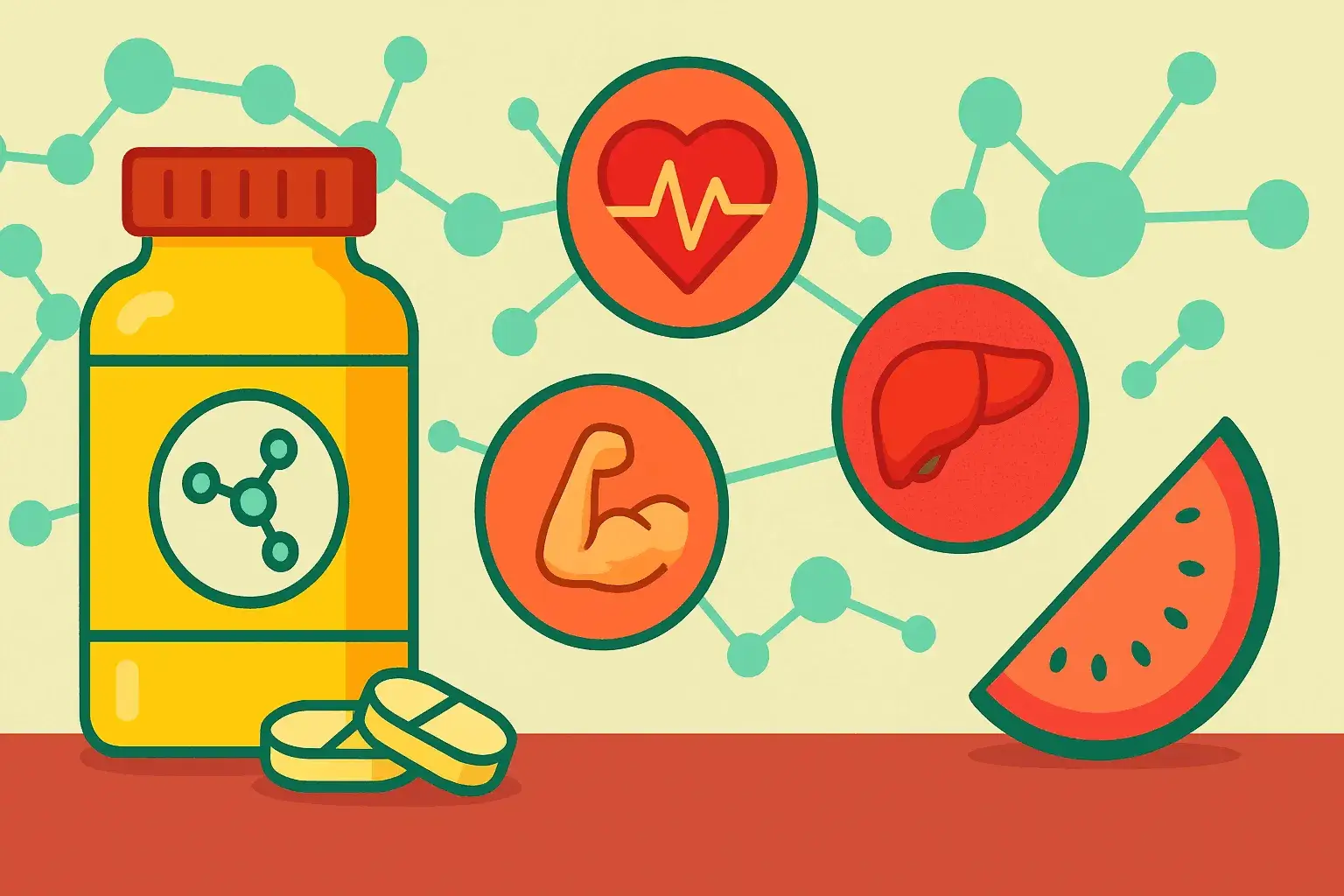
Coffee & Health: Benefits, Risks & Tips
- Marcus Reed
- Health , Nutrition
- May 31, 2025
Table of Contents
Fast Facts: Coffee & Your Health (TL;DR)
- Heart Health: Moderate coffee intake (2-3 cups/day) is linked to lower risks of hypertension, stroke, and heart disease mortality, even in some arrhythmia patients.
- Liver Protection: Regular coffee consumption can improve liver enzyme levels and significantly reduce the risk of chronic liver disease and related mortality.
- Cancer Risk: Coffee is not considered carcinogenic; current evidence suggests it may reduce risks for liver and endometrial cancers, and possibly prostate cancer.
- Safe Consumption: Up to 400mg of caffeine (approx. 2-4 cups of brewed coffee) daily is generally safe. Opt for filtered coffee and limit additives.
- Timing Matters: Morning coffee may offer greater mortality benefits. Limit caffeine in the afternoon/evening to protect sleep.
Introduction
Coffee, a globally popular beverage, has long been scrutinized for its health implications, especially concerning its impact on heart health, liver function, and cancer risk. Over recent decades, a significant body of research has shifted the narrative, increasingly highlighting the potential health benefits associated with its consumption.
This article offers an evidence-based review of current scientific understanding regarding coffee’s effects, providing practical insights for incorporating coffee into a healthy lifestyle safely and beneficially.
Coffee and Your Heart: An Evidence-Based Look
Understanding Caffeine’s Cardiovascular Influence
Caffeine, the primary psychoactive compound in coffee, is a well-known stimulant that can temporarily elevate heart rate and blood pressure. These physiological responses historically fueled concerns about potential cardiovascular risks tied to coffee drinking.
However, contemporary large-scale epidemiological studies and meta-analyses increasingly suggest that moderate coffee intake is not only safe but may also confer protective benefits against several cardiovascular ailments.
Hypertension Risk
A comprehensive 2018 meta-analysis, which synthesized data from nearly 250,000 individuals, reported an inverse association: each additional daily cup of coffee was linked to a 2% reduction in the risk of developing hypertension when compared to non-consumers [1].
Stroke and Overall Mortality
Further supporting cardiovascular benefits, a long-term cohort study involving over 80,000 women tracked for 24 years found a 19% lower risk of stroke among those consuming 2–3 cups of coffee per day [2].
More recently, a 2022 U.K. Biobank cohort study indicated that consuming up to three cups of coffee daily was associated with a significant 17% lower mortality rate from heart disease compared to individuals who did not drink coffee [3].
Outcomes After a Heart Attack
Remarkably, in a Swedish longitudinal study focusing on patients who had previously experienced a heart attack, individuals consuming more coffee showed up to a 40% decreased risk of death from heart disease compared to those who consumed one cup or less daily [4].
Addressing Arrhythmia Concerns
Concerns that caffeine might trigger arrhythmias, particularly atrial fibrillation (AFib), have been extensively investigated. A meta-analysis of seven studies, encompassing over 100,000 participants, found no link between caffeine intake and an increased risk of AFib. In fact, low-dose caffeine was even suggested to have potential protective qualities [5].
A recent cohort study published in the European Heart Journal involving individuals already diagnosed with atrial fibrillation demonstrated that daily coffee consumption (specifically 2 cups/day) was associated with a 21% lower risk of adverse cardiovascular outcomes, including stroke, heart failure, or cardiac death, compared to non-drinkers [6].
Impact on Liver Function and Cancer Risk
Promoting Liver Health
A growing body of research underscores coffee’s positive influence on liver function. A 2021 review in the Journal of Clinical and Experimental Hepatology concluded that consuming two or more cups of coffee daily can improve liver enzyme levels and offer protection against the progression of various liver diseases [7].
Supporting this, data analysis from nearly 500,000 participants in the UK Biobank study revealed a 21% reduced risk of chronic liver disease and a notable 49% decrease in mortality related to liver conditions among regular coffee drinkers compared to non-drinkers [8].
Some researchers are exploring caffeine as a potential therapeutic agent for both preventing and treating liver diseases, particularly non-alcoholic fatty liver disease (NAFLD) [9].
Re-evaluating Cancer Risk
Historically, coffee consumption faced scrutiny regarding a potential link to certain cancers, notably pancreatic and prostate cancers. However, re-evaluation of extensive population-level data has not substantiated these earlier concerns.
The World Health Organization’s International Agency for Research on Cancer (IARC), which had classified coffee as “possibly carcinogenic” in 1991, revised its stance in 2016 based on updated and more robust evidence, concluding that coffee is not classifiable as a carcinogen [10].
Current meta-analytical findings indicate that higher coffee consumption is associated with reduced risks of liver and endometrial cancers [11]. Furthermore, there is no consistent evidence to support an increased risk across other types of malignancies. A separate meta-analysis focusing on coffee intake and prostate cancer risk found that higher consumption correlated with a lower likelihood of developing the disease [12].
Practical Advice for Healthy Coffee Consumption

Timing, Sleep, and Circadian Rhythms
Cortisol, a key hormone in regulating wakefulness, naturally peaks shortly after waking. While some popular advice suggests delaying morning coffee to avoid interfering with this peak, habitual coffee consumers typically develop a tolerance to caffeine’s acute effects on cortisol [13]. Moreover, adenosine blockade is not the sole mechanism of caffeine’s action, and its half-life of approximately five hours means the overall impact isn’t drastically altered by a short delay [13].
To minimize potential disruption to sleep quality, it is widely recommended to limit caffeine intake primarily to the earlier part of the day. Interestingly, one recent study suggested that morning coffee consumption is more strongly associated with reduced mortality than afternoon consumption [14].
Optimal Quantity and Dosage
The U.S. Food and Drug Administration (FDA) advises that up to 400 mg of caffeine per day is generally safe for most healthy adults [15]. This amount typically equates to 2–4 cups of standard brewed coffee, though this can vary depending on the brewing method, bean type, and serving size.
Evidence from numerous clinical studies converges on a daily intake of 2–3 cups of coffee as being optimal for reaping health benefits without incurring significant risks of adverse effects. This dosage range was also highlighted in the recent study on patients with atrial fibrillation as associated with the lowest risk of cardiovascular events [6].
Important Additional Factors
The Influence of Preparation Method

The way coffee is prepared can influence its health impact. Research indicates that filtered coffee (e.g., drip brew with a paper filter) does not typically affect cholesterol levels. In contrast, unfiltered coffee varieties—such as boiled coffee, French press, or Turkish coffee—contain compounds called diterpenes (cafestol and kahweol) which have been associated with increases in total and LDL (“bad”) cholesterol.
For individuals mindful of their lipid profiles, opting for filtered brewing methods is advisable.
Mind the Additives
The addition of cream, sugar, syrups, or other high-calorie additives can easily negate some of coffee’s inherent metabolic benefits. For instance, while black coffee consumption has been linked in some studies to modest weight loss or weight maintenance, sugar-sweetened coffee beverages are often associated with weight gain and an increased risk of type 2 diabetes. To maximize health advantages, consume coffee black or with minimal, low-calorie additions.
Conclusion
The weight of current scientific evidence suggests that moderate coffee consumption is not only generally safe for most healthy adults but may also confer a range of protective health benefits. These include a reduced risk of certain cardiovascular diseases, liver dysfunction, and some types of cancer. By considering optimal timing, appropriate quantity, and mindful preparation methods, individuals can confidently incorporate coffee into a balanced, health-conscious lifestyle. As with any dietary component, individual responses can vary, and those with specific health conditions should consult their healthcare provider.
Frequently Asked Questions (Q&A)
Q1: What are the main health benefits of moderate coffee consumption?
Q2: How much coffee is considered safe for most adults?
Q3: Can coffee negatively affect heart health?
Q4: Does coffee help protect the liver?
Q5: Should I worry about coffee and cancer risk?
Disclaimer
The information provided on BioBrain is intended for educational purposes only and is grounded in science, common sense, and evidence-based medicine. It is not a substitute for professional medical advice, diagnosis, or treatment. Always consult a qualified healthcare provider before making significant changes to your diet, exercise routine, or overall health plan.
References
- Xie, C., Cui, L., Zhu, J., et al. (2018) "Coffee consumption and hypertension: a systematic review and meta-analysis of cohort studies of caffeine and filtered coffee."
- Lopez-Garcia, E., van Dam, R. M., Willett, W. C., et al. (2009) "Coffee Consumption and Risk of Stroke in Women."
- Simon, J., Kistler, P., Chi, G. M., et al. (2022) "Coffee consumption and incident cardiovascular disease and mortality: a prospective cohort study of UK Biobank participants."
- Mukamal, K. J., Hallqvist, J., Hammar, N., et al. (2009) "Coffee consumption and risk of recurrent myocardial infarction in the Stockholm Heart Epidemiology Program."
- Cheng, J. H., Zhang, W., Weng, X. Q., et al. (2014) "Caffeine intake and risk of atrial fibrillation: a meta-analysis of observational studies."
- Choi, H-G., Chung, W-J., Lee, M-H., et al. (2023) "Coffee and tea consumption and the risk of atherosclerotic cardiovascular disease and all-cause mortality in patients with atrial fibrillation: a KNHIS-based nationwide population-based cohort study."
- Burra, P., & Pavan, L. (2021) "Coffee and Liver Health."
- Kennedy, O. J., Fallowfield, J. A., Poole, R., et al. (2021) "All coffee types decrease the risk of adverse clinical outcomes in chronic liver disease: a UK Biobank study."
- Chen, S., Teoh, N. C., Chitturi, S., & Farrell, G. C. (2022) "Caffeine as a potential protective agent against non-alcoholic fatty liver disease: A review of current evidence and underlying mechanisms."
- International Agency for Research on Cancer (IARC/WHO) (2016) "IARC Monographs evaluate drinking coffee, maté, and very hot beverages (Press Release N° 244)."
- Wu, L., Wang, Z., Zhu, J., & Li, L. (2019) "Coffee Consumption and the Risk of Endometrial and Liver Cancer: A Systematic Review and Meta-Analysis."
- Xia, Z., Liu, M., Chen, Y., et al. (2021) "Coffee consumption and risk of prostate cancer: an updated meta-analysis."
- Institute of Medicine (US) Committee on Military Nutrition Research. (1994) "Caffeine. In: Food Components to Enhance Performance and Cognitive Function."
- Liu, X., Yuan, S., Chen, J., et al. (2024) "Coffee consumption and mortality: a prospective cohort study of morning and afternoon coffee intake."
- U.S. Food and Drug Administration (FDA) (2023) "Spilling the Beans: How Much Caffeine is Too Much?"
Tags :
- Coffee health benefits
- Cardiovascular health
- Liver function
- Caffeine effects
- Cancer prevention
- Moderate coffee consumption
- Healthy lifestyle
- Evidence based nutrition
- Long term effects of daily coffee on heart
- Filtered vs unfiltered coffee health
- How much coffee is safe for liver disease


